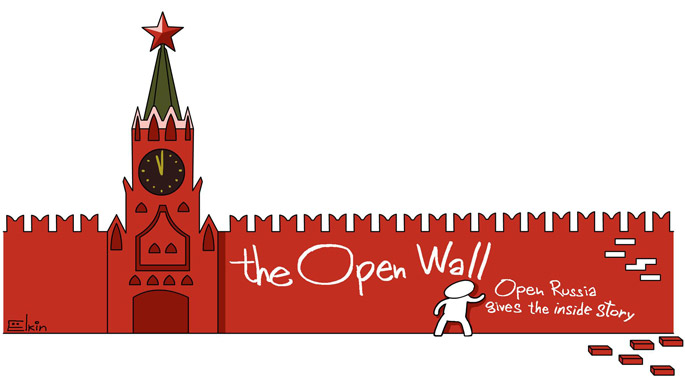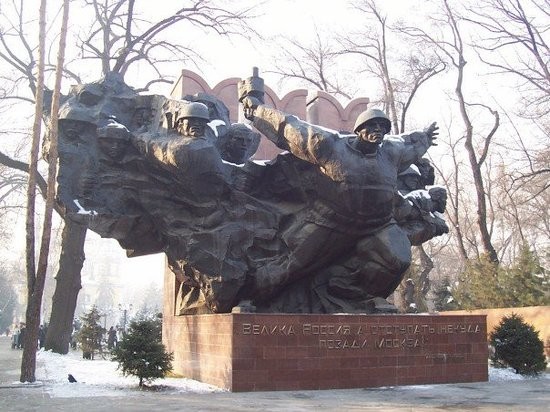Minister Medinsky’s PhD

Minister Medinsky’s PhD
Russian Culture Minister Vladimir Medinsky has submitted his PHD on Russian history – a very particular type of history.

The office has become a vital component, if not the backbone, of post-Soviet life. It is an office job—not a home in the suburbs or two cars per family—that marks out the middle class in modern Russia. An entire office culture has arisen, replete with ritualistic jokes by the water cooler and de rigueur cigarette breaks. Office “plankton” and faceless middle managers are not just the new heroes of Russian mass culture, but also its main consumers—from fiction to films.
The word “office” burst on to the scene in 1991 in the dying days of the Soviet Union and the emergence of capitalism in Russia. Before the 1917 revolution, offices were known as “kontoras” (from German Kontor, ultimately from a Latin word meaning “counting house”). But what happened in between these two seminal years? The Soviet workers’ paradise also had offices. Only they went by a different name: research institutions.
These depressingly grey, uniform glass-and-concrete boxes housed millions across the USSR during the working day. There were, of course, vital technological and defence institutions, but mostly these buildings were home to people engaged in the most meaningless activities. For example, the theory of seventeenth-century versification was addressed by several institutions, which even arranged joint conferences and published journals about their important findings.
These research institutions had their own culture, which in many ways forms the basis of modern office life: women in accounts always drinking tea, pranksters playing tricks, and it wouldn’t be an office party without a fling or two. The main difference was that a scientific degree (usually a Master’s followed by a PhD) was an important marker of status—and not only at the workplace, but in Soviet society as a whole. Everyone knew that a Doctor of Science was well-respected and a good catch.
In the turbulent nineties, when Russian science and academia were in the throes of chronic poverty, this social status quickly evaporated. Researchers turned into tragicomic figures: crackpots and romantics loyal to their principles in return for a handful of kopecks. But in one very important community, academic degrees remained sacrosanct. To this day, Russian officials pursue postgraduate, even doctoral degrees. Everyone wants to be a professor.
Yet everyone understands the warped nature of the enterprise, since ministers, governors and deputies do not write their own dissertations. They are penned by specially employed people who are themselves often too lazy to produce original work, preferring the cut-and-paste method. The practice gave rise to the Dissernet community, which checks the dissertations of public figures for plagiarism. And almost all are found guilty.
Dissernet’s most recent target is Russian Culture Minister Vladimir Medinsky. His doctoral dissertation on Russian history is accused as much of being nonsense as of being plagiarised. Russian bloggers have certainly found it amusing. So would any school kid.When questioned about his cavalier attitude to historical fact, however, Medinsky does not admit that he is wrong. Oh no, he publicly asserts that historical truth is not important, what matters is that people should believe that what he writes is true. For Medinsky – the man responsible for approving school textbooks – it doesn’t matter if the 28 Panfilovtsy [namd after their officer Panfilov] were all killed in action on 16 November 1941, after destroying 18 German tanks. What matters is that their story symbolises the bravery of Soviet soldiers against the Nazis. Never mind that an investigation by Soviet authorities in 1948, since declassified, revealed that the description of the events was exaggerated, and six of the soldiers were still alive … For Medinsky truth is much less important than mythology. Indeed, his PhD should be reclassified as such – a PhD in modern Russian mythology.
Has Medinsky been stripped of his academic title? Not yet. The Urals-based university in question has put off a decision, and the matter has been referred back to Moscow. Most likely the case will be shamefully hushed up, and Medinsky will emerge unscathed. That’s what usually happens.
The real question lies elsewhere. Why do the Medinskys of this world go to such sordid lengths? They already rule the roost in Russia. Why the need for bogus titles? The answer is simple. For nearly a century Russia has had no real aristocracy, and the Komsomol rogues who came to power desperately want to fill the gap. Yearning to be the new nobility, they cling to the status marker they remember from youth—academic prowess.Never mind that once a rogue, always a rogue. Never an aristocrat.



